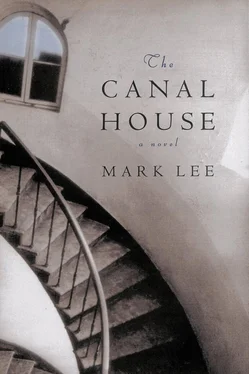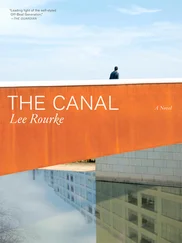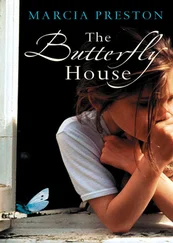“Do you ever want to quit?” he asked. “How do you keep working when all these terrible things are happening around you?”
“It’s a discipline,” I said. “It’s not easy at first, but you train your emotions.” I told him that I still remembered my first patient who died, an old woman at the hospital in Bristol. I had been devastated by the loss, felt guilty and miserable, but gradually learned how to distance myself from what was going on. It was better for the patients if you were able to stay objective, but sometimes it just wasn’t possible. I had another shock the first time I worked abroad, in Pakistan, and watched a little girl die of cholera. That was even worse because I could have saved her had we been in England. Her death was hard to accept—it took me several months to adjust to the shortages and lack of equipment.
“You do everything you can,” I told Richard. “And sometimes, it’s just not enough.”
We took another taxi to Trumpington Street and had lunch. I was probably one of the few people in Britain who didn’t know that Richard was the famous “I Bought My Home with Richard” who owned the Riverside Bank. My ignorance about his celebrity must have amused him. He seemed pleased when I insisted on paying for my share of the lunch.
I asked Richard about his background, but I could tell that I was getting the edited version. He’d grown up in Chelmsford. He was a businessman and worked in London. Mostly we discussed international relief aid. Richard wanted to know what kind of organization I’d create if I had unlimited money and support. We drank a bottle of wine and I told him all the plans I had been thinking about for several years. I talked a bit too much, but Richard kept nodding sympathetically and taking notes. When I mentioned a recent government report on aid, he made a dismissive gesture. “I don’t worry much about politics,” he said. “I’m results oriented.” Apparently, he had decided that helping refugees was a good idea and now he wanted to find the most efficient way to do it.
We got back to King’s College in time for the cocktail party and Richard went off to find two more glasses of wine. I was pinning my name tag back on when Charles Hart sat down on the couch beside me.
“So you’ve met Richard?”
“We spent the afternoon talking. Or, rather, Richard asked questions and I blathered on.”
“That’s wonderful, Julia. I’m very pleased.”
“He’s some sort of businessman. He wants to get involved with refugee aid.”
Charles looked amused. “Dearest Julia, you’ve spent far too much time overseas. Don’t you know who he is?”
“I guess not.”
“He’s the Richard Seaton who owns the Riverside Bank. You just spent the day with one of the wealthiest men in Britain.”
Embarrassed, I tried to remember what I had said about medical aid. When Richard came back with the wine, he seemed to know that I had learned his identity. Suddenly, he acted distant and somewhat wary. As we talked, Charles tried to get Richard involved with an international conference on hunger. Richard said he’d think it over, then announced that he had to leave.
“You’re not staying for dinner?” Charles asked. “We were going to put you up at the head table.”
“Sorry, but I’m catching a helicopter back to the city. I’ve got to prepare for some meetings tomorrow morning.”
Charles said he’d send brochures to the Riverside Bank, then rushed out of the room to change the seating arrangements. Richard turned to me, shook my hand, and didn’t let go.
“A pleasure to meet you, Julia. You’ve given me a lot to think about.”
“Yes. Well, I do hope it all made sense.”
“I’ll contact you in a few days,” he said. Then he left.
Laura told me that men like Richard never called you back. “It wasn’t a date,” I told her. “We talked about infant dehydration.”
“Steamy sex in an automobile, infant dehydration: it’s all the same to them.” Laura had recently broken up with a wealthy Saudi graduate student who turned out to have two wives. “They say they’ll call, swear they’ll call, but they never do.”
I had stayed away from relationships for the last three years. If I was in a war zone or a famine area, I was there to save lives. Getting involved with another person seemed irresponsible, even though the after-hours social scene at the relief camps was as active as Club Med on a Saturday night. There’s nothing like the presence of death and disaster to encourage love affairs.
But I couldn’t stop thinking about Richard and our conversation. He was intelligent and perceptive and interested in helping others. When Laura saw Richard’s bank commercial on television, she shouted at me to come downstairs. I resisted the first time, but later that night I gave in. Sitting on the couch, I watched Richard paint a house with some pensioner in Scotland.
“Is he that handsome in real life?” Laura asked.
I watched the commercial. Richard was walking away from the old man. He stopped and glanced back at the house with a satisfied smile. “I guess so.”
“I’m sure they put makeup on him and style his hair before he does these commercials.”
“Not really. He looked basically the same.”
Laura was wearing her black silk kimono with the embroidered dragon on the back. She turned toward the phone and wiggled her fingers as if casting a magic spell. “Call. You will call. Do it, or be cursed.”
A week later, a big man with reddish hair showed up at the flat. I knew right away that he was ex-military or some kind of police officer. There was an aggressiveness in his manner that suggested a familiarity with violence and power.
“Morning, Doctor. I’m Billy Monroe, Mr. Seaton’s assistant.”
I smiled, but I didn’t invite him in. “Is there something I can do for you, Mr. Monroe?”
Billy evaluated me for a few seconds, then handed over a large manila folder. “My phone number is in there,” he said. “If you want to contact Mr. Seaton, call me.”
I went back inside and brewed a pot of tea before I allowed myself to open the envelope. Then I began to read. It contained photocopies of legal documents that created a nonprofit organization called Hand-to-Hand. I was listed as the executive director and Richard as chairman of the board. There were sketches for a hand-clasping logo and checks for a bank account with ten thousand pounds in it.
I put everything back in the folder, took a walk around the park, then came back and called Billy’s number. A minute later, I was talking to Richard at his office. “You didn’t ask me,” I said.
“This is what you wanted, isn’t it?”
“It is, but—”
“Then it’s done. I can assure you that it didn’t cost me anything to set this up. I’ve got solicitors sitting around all day with nothing to do. If you’ve changed your mind and don’t want to run an organization, then I’ll cancel it out.”
“But you assumed I’d say yes.”
“Not at all. I only knew we’d have this conversation. But now it’s a real choice, isn’t it? Not just talk. Not just a possibility. So tell me, Julia. What do you want to do?”
MOST PEOPLE WOULD have been ecstatic if a wealthy man had appeared on their doorstep and announced, Yes, all your good deeds have been noticed, and now we’re going to create your dream. But I’ve always been suspicious of anything that seems too easily achieved. Why did Richard want to get involved with refugees? He didn’t seem very idealistic and he certainly wasn’t religious. Perhaps he was doing this as an act of pride, like a patron who wanted his name on a concert hall. I usually don’t care why people decide to help others, but I had to wonder how Richard Seaton would deal with failure or, worse, a controversy.
Читать дальше












